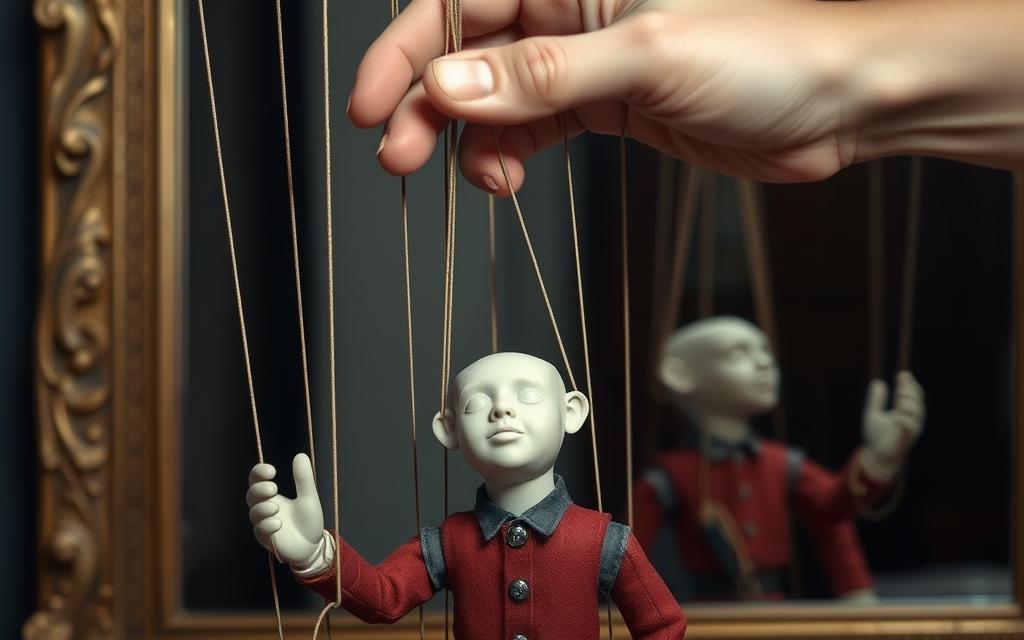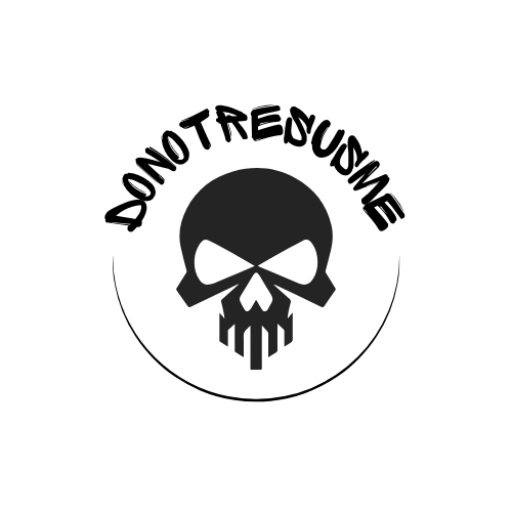Have you ever felt like a puppet with strings pulled by others? I have, and it’s a scary feeling. As a police officer, I’ve seen how some people can deeply affect others’ feelings and choices.
In our lives, a dangerous group hides – the narcissistic, the predatory, and the unstable puppeteer. They can change how we think, feel, and act. This leaves us confused, tired, and without control over our choices. They use big words and sneaky tricks to get what they want.
We’re going to look into how these harmful relationships work. I want to help you see the strings that control you and take back your freedom. We’ll talk about managing our feelings, avoiding biases, and how being mindful can help us fight against those who try to control us.
Unveiling the Toxic Trio
In the complex world of human relationships, there are three types of people who can manipulate others. They are the narcissist, the predatory parasite, and the emotionally unstable puppeteer. These individuals can cause a lot of harm if we don’t watch out.
The Self-Centered Narcissist
The narcissist always wants to be admired. They use their words and actions to impress and control others. They manage how people see them to always look better, making those close feel used.
They have a huge sense of self-importance and feel they deserve special treatment. This makes them great at using others for their own gain.
The Predatory Parasite
The predatory parasite doesn’t need admiration; they need victims. They take from family or strangers, controlling and dominating them. These “puppeteers” play with and trick others without feeling bad, using manipulation to get what they want.
The Emotionally Unstable Puppeteer
The emotionally unstable puppeteer pulls on others’ feelings, leaving them tired and drained. Their needs always come first. They change moods and use harsh words, making others feel they must always be careful and please them.
Being in a relationship with these people feels like being trapped in a toxic situation where you can’t make your own choices.
“The true mark of the narcissist is their inability to empathize with others and their relentless need for admiration and control.”
How Emotions Alter Our Thoughts and Actions

Our actions and reactions are shaped by a mix of emotions and thoughts. Emotions play a big role in our decisions and how we see things. They affect our choices and judgments. By looking into emotion-driven behavior and cognitive biases, we see how our feelings and rationality are linked.
Our beliefs shape our actions, like a puppeteer controls a puppet. Positive beliefs make us feel good and calm. But negative beliefs can make us angry or doubt ourselves.
People react differently to the same situation. Some stay calm, while others get very emotional. Knowing how our emotions and thoughts work together helps us handle life better.
“Emotions are not just the icing on the cake of cognition – they are deeply intertwined with our thought processes, shaping our perceptions, judgments, and decisions in profound ways.”
Exploring emotion-driven behavior and cognitive biases shows us how feelings shape our thoughts and actions. This knowledge helps us balance our emotions and rationality. It leads to better decision-making.
The Narcissist’s Manipulative Strings

Narcissists are experts at manipulating others with grace. They seem charming and alluring, but their true goal is to control. They make others see things their way and act as they want. This is done through sneaky tactics and antisocial behavior.
They create a perfect image of themselves, using emotional seduction to draw people in. They give brief moments of love and attention, then take it away. This keeps their victims always wanting more of their approval.
Underneath their charming exterior, narcissists show their true selves. They lie and twist the truth to fit their needs. They use others’ weaknesses to their advantage, feeding off their emotions and thoughts.
“The narcissist’s greatest superpower is their ability to make you question your own reality.”
It’s important to spot the signs of a narcissist’s manipulation. Knowing how they work can help us stay safe and free from their harm.
Predators and Parasites: Human Puppet Masters
In the complex world of human relationships, some people act as social predators and parasites. They manipulate and use others for their own benefit. These “puppeteers” create a web of lies, treating their victims like puppets to meet their needs. They range from swindlers who love financial scams to those with antisocial personalities who manipulate others.
The Swindler’s Delight
The swindler thrives on using others for their gain. They blend into their victims’ lives, often within their families, without feeling guilty. These social predators enjoy the benefits of their scams, leaving behind broken dreams and trust issues. They use their skills to keep their power over others.
Antisocial Behavior and Insidious Manipulation
Antisocial predators don’t care about others’ well-being. They aim to control their victims’ lives in every way possible. With no empathy and a sense of entitlement, they use manipulation to break down their victims. They turn people into helpless puppets.
It’s important to know about social predators and parasites as we interact with others. Understanding their tactics helps us protect ourselves and our loved ones from their financial scams and antisocial personality. By being aware, we can stay safe from their harm.
Emotional Rollercoasters: Toxic Relationships
Toxic relationships feel like an endless emotional rollercoaster. We must always adjust to the mood swings of those who manipulate us. These people control us, making us feel drained and unable to share our feelings or thoughts. Our actions often come from deep-seated beliefs that make us react without thinking.
Recognizing the Puppet Master’s Control
To escape toxic relationships, we must see the emotional manipulation. These people are experts at making us feel drained by always needing something from us. By understanding their tactics, we can take back control of our thoughts and actions.
Behaviors Stemming from Limiting Beliefs
Our reactions in toxic relationships come from beliefs we’ve adopted without realizing it. These beliefs make us accept bad behavior or give up our own needs. By facing these beliefs, we can start to change the negative thoughts that keep us stuck.
Reacting vs Responding
In toxic relationships, it’s easy to act on impulse. But to break this cycle, we must respond thoughtfully. By developing emotional intelligence and self-awareness, we can pause, think, and choose how we act. This way, we’re not controlled by our feelings.
“The ability to observe without evaluating is the highest form of intelligence.” – Jiddu Krishnamurti
Dealing with toxic relationships needs self-awareness and emotional strength. By seeing the control, changing our beliefs, and responding wisely, we can take back our freedom. We can then build healthier, more meaningful connections.
Reclaiming the Crossbars
To take back control of the “crossbars” that control your actions, you must do inner work. This means building self-awareness, being mindful, and treating yourself kindly. By doing this, you can break free from the inner force that controls you.
Journaling for Self-Awareness
Journaling is a strong tool for uncovering your deep thoughts and finding out why you believe certain things. It helps you see what emotions, thoughts, and habits guide your actions. This self-reflection gives you insights into what makes you tick.
Meditation and Mindfulness
Adding meditation and mindfulness to your daily life can help you slow down your thoughts. It creates a gap between your impulses and actions. This way, you can think before you act, instead of just reacting.
Self-Compassion and Growth
Being kind to yourself instead of hard on yourself helps you grow and handle life’s ups and downs better. When you’re kind to yourself, you set the stage for lasting change. This kindness helps you take back your power.
With hard work and practice, you can free yourself from the inner force that controls you. This opens the door to better emotional control, knowing yourself, and growing personally.
“The freedom to be yourself is a gift, not a burden. Embrace it, nurture it, and watch as your true self blossoms.”
Conclusion
Emotional manipulation can make us feel like we’re being controlled, our actions and thoughts influenced by others. But, we have the power to take back control and build emotional strength.
We can change our beliefs and actions to break free from those who manipulate us. Practices like journaling, meditation, and being kind to ourselves help us understand ourselves better. This way, we learn to think before we act, not just react, to others’ tricks.
We can’t change others, but we can control how we feel and what we decide. Let’s start this journey of self-discovery and growth. Let’s take charge of our lives and be the ones in control of our futures.


Pingback: Daily Exercises Improve Your Mental Health